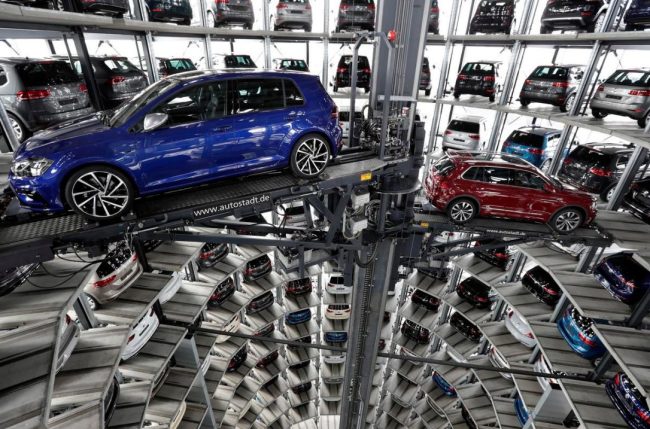Automobiles
Volkswagen deal indicates smooth growth for Korean battery makers
[THE INVESTOR] German carmaker Volkswagen’s recent announcement that it will be supplied with electric vehicle batteries from Samsung SDI and LG Chem through to 2025 in Europe and China is boosting market expectations for growth in the battery industry.
Last week, Volkswagen announced in Berlin that it had selected Korean battery makers Samsung SDI and LG Chem as well as China’s Contemporary Amperex Technology to supply batteries for its upcoming electric vehicles at its European and Chinese plants, with suppliers for North America forthcoming.
 |
The German automaker plans to build as many as 3 million electric vehicles a year by 2025, with US$25 billion in battery supplies already secured.
The deal is one of roughly 30 deals currently secured by LG Chem with automakers, as confirmed by LG Chem’s CEO Park Jin-soo at a recent press conference. Considering that the company has a plant in the US, it is “likely that LG Chem will also take a piece of the North American supply deal,” wrote analyst Kang Dong-jin at Hyundai Motor Investment and Securities.
Kang also noted that Japanese battery maker Panasonic was conspicuously absent from the deal announcement, remarking that Japanese makers’ tendency to secure supply deals through joint ventures could hinder their ability to expand partnerships and increase the market share of Korean companies.
Market research firm SNE Research forecast that global sales of electric vehicles would spike from approximately 1 million units in 2017 to 3.9 million units by 2020.
Batteries for electric vehicles and energy storage systems are considered to be the two major driving forces for growth in the battery industry.
According to analyst Kim Ji-san of Kiwoom, Samsung SDI and LG Chem currently supply about 60 percent of the global ESS market. The technology required to create energy storage systems has a much higher entry barrier than electric car batteries, meaning that Korean companies are likely to maintain their dominance for the time being.
Analysts from Hana Financial Investment forecast that in 2018, Samsung SDI’s market share in the ESS market would grow to 40 percent.
The ESS market itself is set to grow quickly, as the largest portion of sales in the battery sector move from small batteries such as those used in electronics devices to larger batteries used for energy storage systems.
According to SNE Research, the global ESS market is expected to grow rapidly from 4.6 gigawatt hours to 16 gigawatt hours in 2020, and 90.4 gigawatt hours by 2025.
By Won Ho-jung/The Korea Herald (hjwon@heraldcorp.com)








